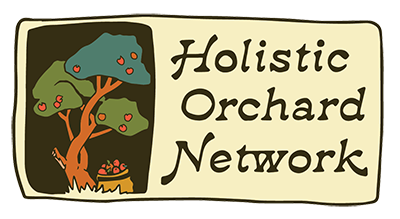Forum Replies Created
-
In reply to: Clarifying the Spray Framework and Core Recipe
May 1, 2024 at 10:55 am #1924Nicky Schander
ParticipantThank you so much @John Willis. This totally helps me!
In reply to: Clarifying the Spray Framework and Core Recipe
February 3, 2024 at 7:09 pm #1847Nicky Schander
ParticipantMy questions are:
1. What are these 2nd, 3rd, and 4th cover sprays?Is this the same as Spring 2-4 or Spring 1-3, the first “cover spray” being “Start Me Up?”
2. What does meristem launch mean? I took this from a search on this forum for Cedar Apple Rust in 2015 https://holisticorchardnetwork.org/community-orchardist-newsletters/community-orchardist-february-2015/?highlight=cedar+apple+rust
3. I outlined the Core Holistic Recipe in recipe format. Has this been done elsewhere before? And did I get it right?Thanks for your help! The new HON looks great!
In reply to: Clarifying the Spray Framework and Core Recipe
February 3, 2024 at 7:00 pm #1846Nicky Schander
ParticipantCedar Apple Rust (CAR)
- Issue: Serious CAR problem in a small home orchard with prevalent cedar trees.
- Solution: GreenCure, a Potassium Bicarbonate-based organic fungicide, tested and effective against CAR.
- Application: Apply GreenCure during wet conditions, 6-8 hours after the start of rain for optimal results.
Holistic Orchard Approach:
- Focus: Priming the immune function of the tree and introducing deep nutrition for competitive colonization.
- Additional Methods: Alter leaf pH with products like GreenCure to hinder basidiospore germination.
- Other Products: Armicarb, Kaligreen, and Milstop can enhance efficacy when used with an organic spreader/sticker. (I’m not sure what an organic spread/sticker is)
Spring Holistic Sprays:
- Core Holistic Recipe: Fish hydrolysate, pure neem oil, seaweed extract, effective microbes/aerated compost tea. (See recipe below)
- Timing: Applications during the quarter-inch green, pink, and petal fall, and seven days later.
- Bloom Competitive Colonization: Essential to prevent fire blight, using Karanja oil, competitive microbes, seaweed extract, and blackstrap.
Comprehensive Applications (Fruit Sizing Window):
- Issues Addressed: Curculio, sawfly, internal-feeding moth larvae, scab, cedar apple rust, and black rot.
- What: Pure Neem Oil (NimBioSys label for pure neem oil with EPA registration for certified-organic growers)
- Timing: 2nd, 3rd, and 4th cover sprays every 7-10 days during the fruit sizing window. (What are these 2nd, 3rd, and 4th cover sprays?Is this the same as Spring 2-4 or Spring 1-3, the first “cover spray” being “Start Me Up?”)
- Key Components: Calcium and silica brews included in the core holistic recipe to build cuticle strength on leaf and fruit surfaces.
- Kaolin Clay Strategy: Applied separately from fatty oils, the day after a holistic app, to keep fine clay particles “unstuck” on plant surfaces
Spring1 – Tight Cluster to Open Cluster:
- Timing: 5 to 9 days before Spring2.
- Description: Overall tree canopy is sparse; soil and arboreal food webs are engaged; wets down branch structure and trunk for decomposition.
Spring2 – Pink, Delayed as Long as Possible:
- Timing: Up to 7 days before a bloom time rain.
- Description: Blossoms show pink;
Spring3 – Petal Fall, ASAP:
- Timing: 5 to 9 days before Spring4.
- Description: Continues thorough spraying to runoff; renewal spray after extended bloom; trace minerals for seed development. (Trace minerals can be found in seaweed sprays)
Spring4 – First Cover (Beyond Bud Stage Lingo):
- Timing: Better to err on the side of sooner rather than later.
- Description: Fruitlets starting to reveal; major wetting events; risk of primary scab ending; add trace minerals for meristem launch. (I have no idea what meristem launch means)
Summer Holistic Sprays:
- Frequency: Biweekly applications.
- Composition: Core recipe minus nitrogen-rich fish, including foliar calcium. Consider adding milk for the brown rot of peaches.
- Monitoring: Traps for maggot flies to indicate the need for additional actions.
Fall Holistic Spray:
- Focus: Leaf decomposition, hindering scab overwintering sites, addressing insect eggs/larvae.
- Components: Higher rates of liquid fish, neem oil, and increased microbes for better decomposition.
- Benefits: Azadiractins in neem hinder insect development, while good fats stimulate mycorrhizae during the fall feeder root flush.
When they mention Core Holistic Recipe above they mean this:
-
Core Holistic Recipe
- Ingredients:
- 2.5 ounces pure neem oil
- A generous teaspoonful of soap emulsifier
- 10 ounces liquid fish
- 6 ounces mother culture of effective microbes
- Up to a half cup of blackstrap molasses
- 5 tablespoons liquid kelp or 0.5 ounce (dry weight) of seaweed extract
- Instructions:
- In a suitable container, mix 2.5 ounces of pure neem oil with a generous teaspoonful of soap emulsifier to achieve a 0.5 percent neem concentration.
- Add 10 ounces of liquid fish and 6 ounces of mother culture of effective microbes to the water filling the spray tank.
- Dissolve as much as a half cup of blackstrap molasses into the mixture to launch the beneficial microbes.
- Additionally, include 5 tablespoons of liquid kelp or 0.5 ounce (dry weight) of seaweed extract to enhance the overall solution.
- Ensure thorough mixing to create a well-blended solution.
- Use the prepared mixture in a 4-gallon backpack sprayer, covering the trees until runoff is achieved.
In reply to: Clarifying the Spray Framework and Core Recipe
February 3, 2024 at 6:45 pm #1845Nicky Schander
ParticipantSorry, I was trying to lay it out by cutting and pasting code but it didn’t work well. Let me try again
